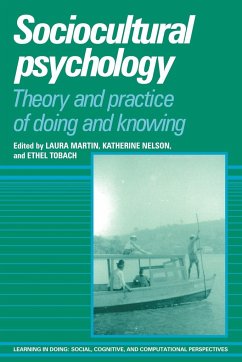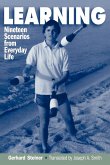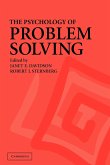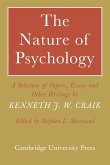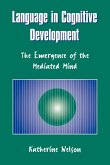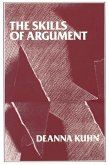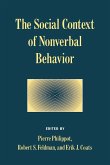Sociocultural Psychology
Theory and Practice of Doing and Knowing
Herausgeber: Martin, Laura; Tobach, Ethel; Nelson, Katherine
Sociocultural Psychology
Theory and Practice of Doing and Knowing
Herausgeber: Martin, Laura; Tobach, Ethel; Nelson, Katherine
- Broschiertes Buch
- Merkliste
- Auf die Merkliste
- Bewerten Bewerten
- Teilen
- Produkt teilen
- Produkterinnerung
- Produkterinnerung
Presents applications of activity theory; in honour of Sylvia Scribner.
Andere Kunden interessierten sich auch für
![Learning Learning]() Gerhard SteinerLearning37,99 €
Gerhard SteinerLearning37,99 €![The Psychology of Problem Solving The Psychology of Problem Solving]() Janet E. Davidson / Robert J. Sternberg (eds.)The Psychology of Problem Solving47,99 €
Janet E. Davidson / Robert J. Sternberg (eds.)The Psychology of Problem Solving47,99 €![The Nature of Psychology The Nature of Psychology]() Kenneth J. W. CraikThe Nature of Psychology38,99 €
Kenneth J. W. CraikThe Nature of Psychology38,99 €![Language in Cognitive Development Language in Cognitive Development]() Katherine NelsonLanguage in Cognitive Development58,99 €
Katherine NelsonLanguage in Cognitive Development58,99 €![The Skills of Argument The Skills of Argument]() Deanna KuhnThe Skills of Argument47,99 €
Deanna KuhnThe Skills of Argument47,99 €![The Social Context of Nonverbal Behavior The Social Context of Nonverbal Behavior]() Pierre Philippot / S. Feldman / J. Coats (eds.)The Social Context of Nonverbal Behavior46,99 €
Pierre Philippot / S. Feldman / J. Coats (eds.)The Social Context of Nonverbal Behavior46,99 €![Breakdown of Will Breakdown of Will]() George AinslieBreakdown of Will34,99 €
George AinslieBreakdown of Will34,99 €-
-
-
Presents applications of activity theory; in honour of Sylvia Scribner.
Hinweis: Dieser Artikel kann nur an eine deutsche Lieferadresse ausgeliefert werden.
Hinweis: Dieser Artikel kann nur an eine deutsche Lieferadresse ausgeliefert werden.
Produktdetails
- Produktdetails
- Verlag: Cambridge University Press
- Seitenzahl: 428
- Erscheinungstermin: 31. Juli 2008
- Englisch
- Abmessung: 229mm x 152mm x 25mm
- Gewicht: 691g
- ISBN-13: 9780521089180
- ISBN-10: 0521089182
- Artikelnr.: 25044424
- Herstellerkennzeichnung
- Libri GmbH
- Europaallee 1
- 36244 Bad Hersfeld
- gpsr@libri.de
- Verlag: Cambridge University Press
- Seitenzahl: 428
- Erscheinungstermin: 31. Juli 2008
- Englisch
- Abmessung: 229mm x 152mm x 25mm
- Gewicht: 691g
- ISBN-13: 9780521089180
- ISBN-10: 0521089182
- Artikelnr.: 25044424
- Herstellerkennzeichnung
- Libri GmbH
- Europaallee 1
- 36244 Bad Hersfeld
- gpsr@libri.de
1. Introduction Laura Martin, Katherine Nelson and Ethel Tobach; 2.
Situated theory as a bridge between psychology, history, and educational
practices Robert Serpell; 3. The uniqueness of human labor Ethel Tobach; 4.
Reflecting Russian consciousness Jerome Bruner; 5. Opening vistas for
cognitive psychology William Hirst and David Manier; 6. Analysis of
developmental processes in sociocultural activity Barbara Rogoff, Barabara
Radziszewska and Tracy Miello; 7. Linking thought and setting in the study
of workplace learning Laura M. W. Martin; 8. Creating sustainable activity
systems: a meso-genetic approach Michael Cole; 9. The abstract and the
concrete Rachel Joffe Falmagne; 10. From spontaneous to scientific
concepts: continuities and discontinuities from childhood to adulthood
Katherine Nelson; 11. The psychology of Japanese literacy: expanding 'The
practice account' Giyoo Hatano; 12. Voices of thinking and speaking James
V. Wertsch, Fran Hagstrom and Eve Kikas; 13. The qualitative analysis of
the development of a child's theoretical knowledge and thinking Mariane
Hedegaard; 14. Intellectual and manual labor: implications for
developmental theory Joseph Glick; 15. Innovative organizational learning
in medical and legal settings Yrjö Engeström; 16. Visionary realism,
lifespan discretionary time, and the evolving role of work Howard E.
Gruber.
Situated theory as a bridge between psychology, history, and educational
practices Robert Serpell; 3. The uniqueness of human labor Ethel Tobach; 4.
Reflecting Russian consciousness Jerome Bruner; 5. Opening vistas for
cognitive psychology William Hirst and David Manier; 6. Analysis of
developmental processes in sociocultural activity Barbara Rogoff, Barabara
Radziszewska and Tracy Miello; 7. Linking thought and setting in the study
of workplace learning Laura M. W. Martin; 8. Creating sustainable activity
systems: a meso-genetic approach Michael Cole; 9. The abstract and the
concrete Rachel Joffe Falmagne; 10. From spontaneous to scientific
concepts: continuities and discontinuities from childhood to adulthood
Katherine Nelson; 11. The psychology of Japanese literacy: expanding 'The
practice account' Giyoo Hatano; 12. Voices of thinking and speaking James
V. Wertsch, Fran Hagstrom and Eve Kikas; 13. The qualitative analysis of
the development of a child's theoretical knowledge and thinking Mariane
Hedegaard; 14. Intellectual and manual labor: implications for
developmental theory Joseph Glick; 15. Innovative organizational learning
in medical and legal settings Yrjö Engeström; 16. Visionary realism,
lifespan discretionary time, and the evolving role of work Howard E.
Gruber.
1. Introduction Laura Martin, Katherine Nelson and Ethel Tobach; 2.
Situated theory as a bridge between psychology, history, and educational
practices Robert Serpell; 3. The uniqueness of human labor Ethel Tobach; 4.
Reflecting Russian consciousness Jerome Bruner; 5. Opening vistas for
cognitive psychology William Hirst and David Manier; 6. Analysis of
developmental processes in sociocultural activity Barbara Rogoff, Barabara
Radziszewska and Tracy Miello; 7. Linking thought and setting in the study
of workplace learning Laura M. W. Martin; 8. Creating sustainable activity
systems: a meso-genetic approach Michael Cole; 9. The abstract and the
concrete Rachel Joffe Falmagne; 10. From spontaneous to scientific
concepts: continuities and discontinuities from childhood to adulthood
Katherine Nelson; 11. The psychology of Japanese literacy: expanding 'The
practice account' Giyoo Hatano; 12. Voices of thinking and speaking James
V. Wertsch, Fran Hagstrom and Eve Kikas; 13. The qualitative analysis of
the development of a child's theoretical knowledge and thinking Mariane
Hedegaard; 14. Intellectual and manual labor: implications for
developmental theory Joseph Glick; 15. Innovative organizational learning
in medical and legal settings Yrjö Engeström; 16. Visionary realism,
lifespan discretionary time, and the evolving role of work Howard E.
Gruber.
Situated theory as a bridge between psychology, history, and educational
practices Robert Serpell; 3. The uniqueness of human labor Ethel Tobach; 4.
Reflecting Russian consciousness Jerome Bruner; 5. Opening vistas for
cognitive psychology William Hirst and David Manier; 6. Analysis of
developmental processes in sociocultural activity Barbara Rogoff, Barabara
Radziszewska and Tracy Miello; 7. Linking thought and setting in the study
of workplace learning Laura M. W. Martin; 8. Creating sustainable activity
systems: a meso-genetic approach Michael Cole; 9. The abstract and the
concrete Rachel Joffe Falmagne; 10. From spontaneous to scientific
concepts: continuities and discontinuities from childhood to adulthood
Katherine Nelson; 11. The psychology of Japanese literacy: expanding 'The
practice account' Giyoo Hatano; 12. Voices of thinking and speaking James
V. Wertsch, Fran Hagstrom and Eve Kikas; 13. The qualitative analysis of
the development of a child's theoretical knowledge and thinking Mariane
Hedegaard; 14. Intellectual and manual labor: implications for
developmental theory Joseph Glick; 15. Innovative organizational learning
in medical and legal settings Yrjö Engeström; 16. Visionary realism,
lifespan discretionary time, and the evolving role of work Howard E.
Gruber.

